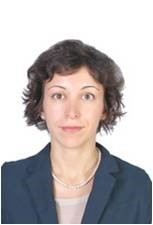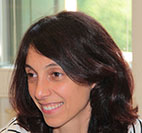Studying at the University of Verona
Here you can find information on the organisational aspects of the Programme, lecture timetables, learning activities and useful contact details for your time at the University, from enrolment to graduation.
Academic calendar
The academic calendar shows the deadlines and scheduled events that are relevant to students, teaching and technical-administrative staff of the University. Public holidays and University closures are also indicated. The academic year normally begins on 1 October each year and ends on 30 September of the following year.
Course calendar
The Academic Calendar sets out the degree programme lecture and exam timetables, as well as the relevant university closure dates..
| Period | From | To |
|---|---|---|
| Semester 1 | Oct 3, 2022 | Jan 27, 2023 |
| Primo sem_ 3 anno | Oct 24, 2022 | Jan 27, 2023 |
| Semester 2 | Mar 6, 2023 | Jun 16, 2023 |
| Session | From | To |
|---|---|---|
| Sessione invernale d'esame | Jan 30, 2023 | Mar 3, 2023 |
| Sessione estiva d'esame | Jun 19, 2023 | Jul 31, 2023 |
| Sessione autunnale d'esame | Sep 4, 2023 | Sep 29, 2023 |
| Session | From | To |
|---|---|---|
| Sessione di laurea estiva | Jul 21, 2023 | Jul 21, 2023 |
| Sessione di laurea autunnale | Oct 20, 2023 | Oct 20, 2023 |
| Sessione di laurea autunnale - Dicembre | Dec 7, 2023 | Dec 7, 2023 |
| Sessione invernale di laurea | Mar 15, 2024 | Mar 15, 2024 |
| Period | From | To |
|---|---|---|
| Ponte Festa di tutti i Santi | Oct 31, 2022 | Nov 1, 2022 |
| Ponte dell'Immacolata Concezione | Dec 8, 2022 | Dec 9, 2022 |
| Vacanze natalizie | Dec 23, 2022 | Jan 8, 2023 |
| Vacanze di Pasqua | Apr 7, 2023 | Apr 10, 2023 |
| Festa della Liberazione | Apr 24, 2023 | Apr 25, 2023 |
| Festa dei Lavoratori | May 1, 2023 | May 1, 2023 |
| Festa del Santo Patrono | May 21, 2023 | May 21, 2023 |
| Festa della Repubblica | Jun 2, 2023 | Jun 2, 2023 |
| Chiusura estiva | Aug 14, 2023 | Aug 19, 2023 |
Exam calendar
Exam dates and rounds are managed by the relevant Science and Engineering Teaching and Student Services Unit.
To view all the exam sessions available, please use the Exam dashboard on ESSE3.
If you forgot your login details or have problems logging in, please contact the relevant IT HelpDesk, or check the login details recovery web page.
Should you have any doubts or questions, please check the Enrollment FAQs
Academic staff
 michela.cecchin@univr.it
michela.cecchin@univr.it
Study Plan
The Study Plan includes all modules, teaching and learning activities that each student will need to undertake during their time at the University.
Please select your Study Plan based on your enrollment year.
1° Year
| Modules | Credits | TAF | SSD |
|---|
2° Year activated in the A.Y. 2023/2024
| Modules | Credits | TAF | SSD |
|---|
3° Year It will be activated in the A.Y. 2024/2025
| Modules | Credits | TAF | SSD |
|---|
| Modules | Credits | TAF | SSD |
|---|
| Modules | Credits | TAF | SSD |
|---|
| Modules | Credits | TAF | SSD |
|---|
Legend | Type of training activity (TTA)
TAF (Type of Educational Activity) All courses and activities are classified into different types of educational activities, indicated by a letter.
Wine politics and law (wine policy) (2024/2025)
Teaching code
4S02034
Teacher
Not yet assigned
Credits
6
Language
Italian
Scientific Disciplinary Sector (SSD)
AGR/01 - AGRICULTURAL ECONOMICS AND RURAL APPRAISAL
Period
II semestre dal Mar 3, 2025 al Jun 13, 2025.
Courses Single
Authorized
Learning objectives
To allow the student to carry out the profession of oenologist with mastery of the voluntary and mandatory rules concerning the management of the winery. To know the main EU regulations and directives that regulate each phase of wine production, from the management of the vineyard to winemaking and bottling. Labelling, packaging, marketing rules and national and international transport. Know how to manage export taxation, international marketing rules, excise duties and accompanying documents. The VAT regime in agriculture and ordinary. To allow access to the knowledge of the rules and the logic of public choices in the themes of community policy in the field of agriculture, sustainability, organic production, distinctions between the form of certification and criteria of public support for ""greening"" policies. The policies will also be critically evaluated in relation to the results obtained and their effectiveness
Type D and Type F activities
Le attività formative di tipologia D sono a scelta dello studente, quelle di tipologia F sono ulteriori conoscenze utili all’inserimento nel mondo del lavoro (tirocini, competenze trasversali, project works, ecc.). In base al Regolamento Didattico del Corso, alcune attività possono essere scelte e inserite autonomamente a libretto, altre devono essere approvate da apposita commissione per verificarne la coerenza con il piano di studio. Le attività formative di tipologia D o F possono essere ricoperte dalle seguenti attività.
1. Insegnamenti impartiti presso l'Università di Verona
Comprendono gli insegnamenti sotto riportati e/o nel Catalogo degli insegnamenti (che può essere filtrato anche per lingua di erogazione tramite la Ricerca avanzata).
Modalità di inserimento a libretto: se l'insegnamento è compreso tra quelli sottoelencati, lo studente può inserirlo autonomamente durante il periodo in cui il piano di studi è aperto; in caso contrario, lo studente deve fare richiesta alla Segreteria, inviando a carriere.scienze@ateneo.univr.it il modulo nel periodo indicato.
2. Attestato o equipollenza linguistica CLA
Oltre a quelle richieste dal piano di studi, per gli immatricolati dall'A.A. 2021/2022 vengono riconosciute:
- Lingua inglese: vengono riconosciuti 3 CFU per ogni livello di competenza superiore a quello richiesto dal corso di studio (se non già riconosciuto nel ciclo di studi precedente).
- Altre lingue e italiano per stranieri: vengono riconosciuti 3 CFU per ogni livello di competenza a partire da A2 (se non già riconosciuto nel ciclo di studi precedente).
Tali cfu saranno riconosciuti, fino ad un massimo di 6 cfu complessivi, di tipologia F se il piano didattico lo consente, oppure di tipologia D. Ulteriori crediti a scelta per conoscenze linguistiche potranno essere riconosciuti solo se coerenti con il progetto formativo dello studente e se adeguatamente motivati.
Gli immatricolati fino all'A.A. 2020/2021 devono consultare le informazioni che si trovano qui.
Modalità di inserimento a libretto: richiedere l’attestato o l'equipollenza al CLA e inviarlo alla Segreteria Studenti - Carriere per l’inserimento dell’esame in carriera, tramite mail: carriere.scienze@ateneo.univr.it
3. Competenze trasversali
Scopri i percorsi formativi promossi dal TALC - Teaching and learning center dell'Ateneo, destinati agli studenti regolarmente iscritti all'anno accademico di erogazione del corso https://talc.univr.it/it/competenze-trasversali
Modalità di inserimento a libretto: non è previsto l'inserimento dell'insegnamento nel piano di studi. Solo in seguito all'ottenimento dell'Open Badge verranno automaticamente convalidati i CFU a libretto. La registrazione dei CFU in carriera non è istantanea, ma ci saranno da attendere dei tempi tecnici.
4. CONTAMINATION LAB
Il Contamination Lab Verona (CLab Verona) è un percorso esperienziale con moduli dedicati all'innovazione e alla cultura d'impresa che offre la possibilità di lavorare in team con studenti e studentesse di tutti i corsi di studio per risolvere sfide lanciate da aziende ed enti. Il percorso permette di ricevere 6 CFU in ambito D o F. Scopri le sfide: https://www.univr.it/clabverona
ATTENZIONE: Per essere ammessi a sostenere una qualsiasi attività didattica, incluse quelle a scelta, è necessario essere iscritti all'anno di corso in cui essa viene offerta. Si raccomanda, pertanto, ai laureandi delle sessioni di dicembre e aprile di NON svolgere attività extracurriculari del nuovo anno accademico, cui loro non risultano iscritti, essendo tali sessioni di laurea con validità riferita all'anno accademico precedente. Quindi, per attività svolte in un anno accademico cui non si è iscritti, non si potrà dar luogo a riconoscimento di CFU.
5. Periodo di stage/tirocinio
Oltre ai CFU previsti dal piano di studi (verificare attentamente quanto indicato sul Regolamento Didattico): qui informazioni su come attivare lo stage.
Insegnamenti e altre attività che si possono inserire autonomamente a libretto
| years | Modules | TAF | Teacher |
|---|---|---|---|
| 3° | Cellar door wine tourism | D |
Katia Laura Sidali
(Coordinator)
|
| 3° | Wine marketing | D |
Diego Begalli
(Coordinator)
|
| 3° | New Grapevine Breeding techniques | D |
Sara Zenoni
(Coordinator)
|
Career prospects
Module/Programme news
News for students
There you will find information, resources and services useful during your time at the University (Student’s exam record, your study plan on ESSE3, Distance Learning courses, university email account, office forms, administrative procedures, etc.). You can log into MyUnivr with your GIA login details: only in this way will you be able to receive notification of all the notices from your teachers and your secretariat via email and soon also via the Univr app.
Graduation
Attendance
As stated in the Teaching Regulations for the A.Y. 2022/2023, attendance is mandatory for practical and laboratory activities, unless otherwise determined by the Teaching Committee.
Documents
| Title | Info File |
|---|---|
|
|
pdf, it, 121 KB, 18/10/23 |

 045 8028731
045 8028731


















